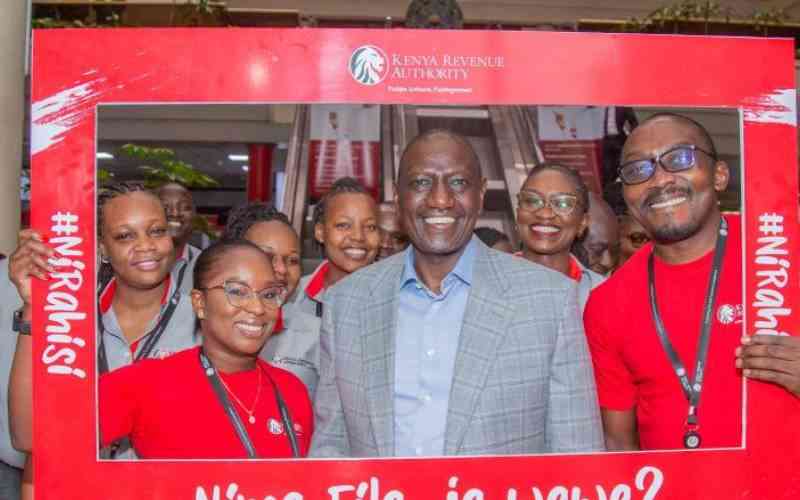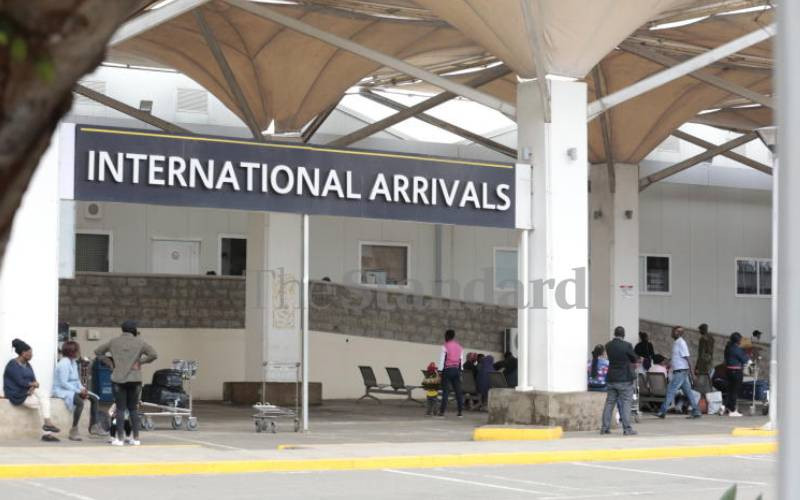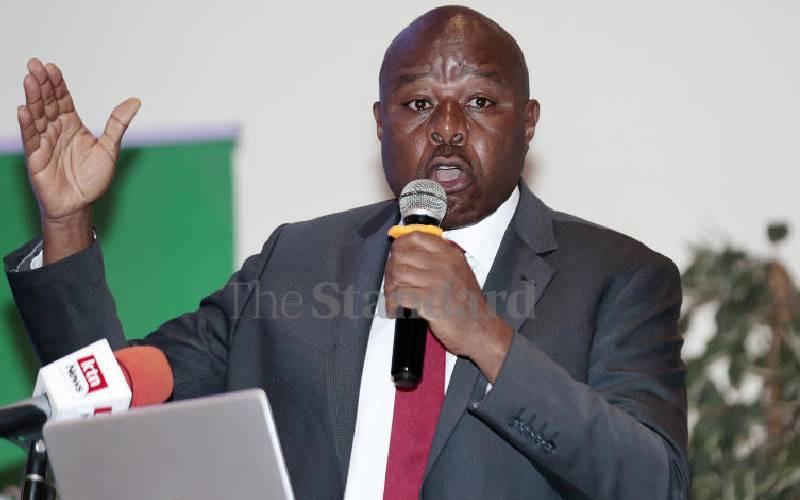When Treasury Cabinet Secretary Henry Rotich took to the Parliament’s floor to present next year’s budget statement, he touched on a prickly topic that in the last one year has rattled both the taxman and fiscal experts. This is the tax amnesty for wealthy Kenyans who have stashed money abroad.
In a totally stark difference in opinion on how the amnesty should be handled, Mr Rotich overruled an earlier assertion by Kenya Revenue Authority, which had firmly claimed that the amnesty whose deadline was December 31 this year, would not be extended under any circumstance.
Voluntarily declared
KRA Deputy Commissioner in Charge of Policy Unit James Ojee had asserted earlier that the taxman had advised Treasury not to urge Parliament to extend the deadline, since serial tax defaulters would be encouraged by such amnesties to keep defaulting.
But in the budget speech, Rotich went against KRA’s advice and announced: “I have noted that there is need to clarify the circumstances under which the amnesty will be granted. Consequently, taxpayers willing to enjoy amnesty should declare the income for year 2016, file return and accounts for year 2016 by June 30, 2018 and transfer back to Kenya the funds voluntarily declared under the amnesty.”
The extension of the deadline without KRA’s knowledge notwithstanding, the amnesty was generally perceived to be targeting the more than $1.2 billion (Sh124 billion) looted from Kenyan taxpayers during previous regimes and stashed in offshore bank accounts, as well as prime real estate properties overseas according to a forensic study by American corporate investigations and risk consulting firm Kroll Associates.
But as Mr Ojee came out to specify in a later interview, the amnesty is majorly targeting Kenyan runners, footballers and musicians who have made a fortune and invested it outside the country. “Our athletes, footballers and music artistes who perform outside the country earn income overseas and they have bank accounts overseas. They have other assets and yet they are Kenyan tax residents. These are the people we want to come forward and take advantage of the tax amnesty. After declaration of their incomes, we will guide them on how they can repatriate their wealth,” Ojee said.
He added that the same sportspersons and performers own so many immovable assets such as buildings overseas which merely sit in places such as the UK or France and are of no use to the Kenyan economy. KRA expects the sportspeople and performers to sell these immovable assets and reinvest back the money in Kenya while taking advantage of the amnesty.
“I know many people will think that we are unfair to our world-beating athletes and precocious musicians. But for a tax system to be fair, it has to embrace the doctrine of equality. There is no equality when there are wealthy Kenyan sports people and musicians abroad earning incomes and not paying tax even when they are resident Kenyan taxpayers,” Ojee averred.
Nab tax-cheats
High-flying Kenyan footballers and runners are known to earn huge incomes from their engagements abroad, while musicians are known to perform in money-spinning concerts. But at the same time, many have been known to live in penury years after their running or performing days are over and their investments don’t pay up.
Some of them pay taxes after winning prize monies in major marathons abroad, and the prize money is first taxed in the country where the races were held. Now KRA expects the same money to be taxed also in Kenya, without explaining how the double taxation that could occur will be avoided.
Mbiki Kamanjiri, a manager at tax advisory firm Grant Thornton opines that instead of KRA concentrating on attracting wealth stashed abroad especially incomes from our performers and sportspersons, the amnesty should be used more to nab tax-cheats.
“I would say that the most important benefit especially for KRA is being able to map tax evaders. When a similar amnesty was announced for rental income, KRA was able to map landlords and enforce taxation on them,” Kamanjiri said in a recent interview.
Stay informed. Subscribe to our newsletter
Kamanjiri also says that the amnesty, having come when we are in an election year, could be manipulated by the same tax-cheats to engage in illicit financial flows. “I also think the reason the amnesty was put in place, and one which KRA wouldn’t want to say, is that the country is in an election year and a lot of money will be needed by politicians for campaigns,” Kamanjiri said.
[email protected]
 The Standard Group Plc is a
multi-media organization with investments in media platforms spanning newspaper
print operations, television, radio broadcasting, digital and online services. The
Standard Group is recognized as a leading multi-media house in Kenya with a key
influence in matters of national and international interest.
The Standard Group Plc is a
multi-media organization with investments in media platforms spanning newspaper
print operations, television, radio broadcasting, digital and online services. The
Standard Group is recognized as a leading multi-media house in Kenya with a key
influence in matters of national and international interest.
 The Standard Group Plc is a
multi-media organization with investments in media platforms spanning newspaper
print operations, television, radio broadcasting, digital and online services. The
Standard Group is recognized as a leading multi-media house in Kenya with a key
influence in matters of national and international interest.
The Standard Group Plc is a
multi-media organization with investments in media platforms spanning newspaper
print operations, television, radio broadcasting, digital and online services. The
Standard Group is recognized as a leading multi-media house in Kenya with a key
influence in matters of national and international interest.








